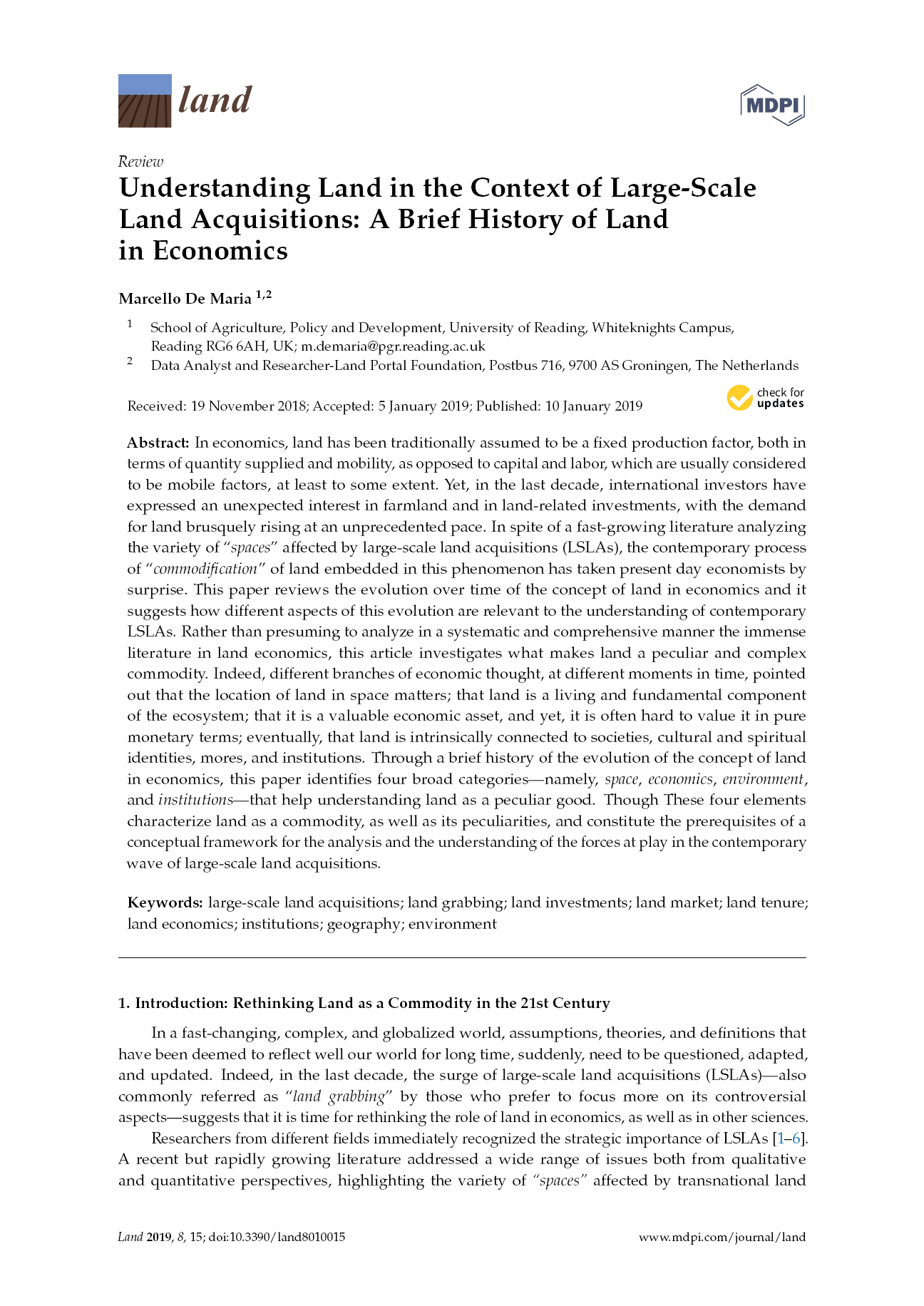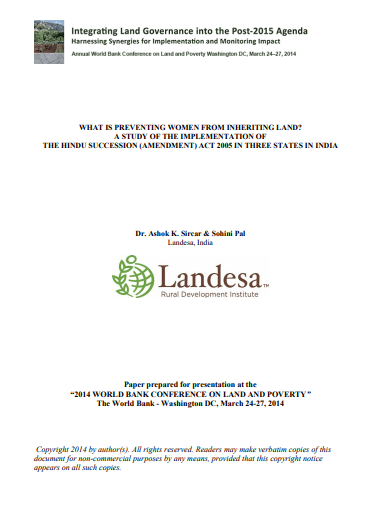Rural Land Policy, Rural Transformation and Recent Trends in Large-scale Rural Land Acquisitions in Ethiopia
Examines the impact of rural land policy on rural transformation and food self-sufficiency in Ethiopia and the relation this has with recent trends in large-scale rural land transactions. Concludes that there is very little institutional and technical capacity at regional level to conduct monitoring and oversight and enforce project obligations effectively.




